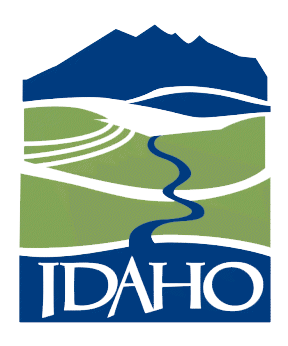Roles
The Idaho State Soil and Water Conservation Commission’s (ISWCC) enabling statute is organized under the Idaho State Department of Agriculture’s Soil Conservation District Law in Section 22-2718, Idaho Code though it is an independent state agency. The Legislature transferred the Soil and Water Conservation Commission from the Department of Lands to the Department of Agriculture effective July 1, 1997. The Commission’s five members are appointed to staggered five-year terms by the Governor to assist Idaho’s 50 Conservation Districts in accordance with statute. The Commission’s mission is to facilitate coordinated non-regulatory, voluntary, and locally-led conservation by federal, state, and local governments including Idaho’s conservation districts and other partners; in order to conserve, sustain, improve, and enhance soil, water, air, plant and animal resources.
The State Commission focuses on doing Conservation the Idaho Way – voluntary stewardship vs. regulatory mandates. We promote responsible stewardship by providing assistance and support for conservation projects on private lands. Proactive, non-regulatory projects address issues of concern and can help avoid costly lawsuits and onerous regulations. We and our partners – local Conservation Districts (Districts), the USDA Natural Resources Conservation Service (NRCS), and others – work together to assist farmers and ranchers engaged in voluntary stewardship projects. Together, we are the heartbeat of voluntary conservation in Idaho.
Nationally, state Conservation Commissions are represented by the nonprofit National Association of State Conservation Agencies, a coalition of state conservation agencies which provide guidance (also technical and capacity building assistance) and funding to local Conservation Districts. Members also operate various state conservation programs.
Responsibilities
The responsibilities of the Commission are to:
- Provide technical assistance to owners and operators of private lands for the planning, implementation, and evaluation of agricultural Best Management Practices (BMPs).
- Support local Districts in the wise use and enhancement of soil, water, and related resources; and assist Districts in the coordination of public outreach activities and offer technical and financial resources.
- Offer assistance to Districts in carrying out their powers and programs, and allocate state funds to districts to assist with conservation projects.
- Inform District Supervisors of actions and priorities of other Districts to facilitate a sharing of information and to promote cooperation.
- Develop the agricultural component of Total Maximum Daily Load (TMDL) water quality watershed implementation plans in consultation with Districts and Watershed Advisory Groups.
- Provide technical and administrative assistance to Districts and Watershed Advisory Groups for TMDL planning and implementation.
- Coordinate the periodic review and update of the Idaho Agricultural Pollution Plan (Ag Plan) in consultation with the Ag Plan Advisory Committee (currently every 10 years, the last update was in 2015) . Implement the Ag Plan for private and state agricultural lands.
- Administer the Resource Conservation and Rangeland Development Program (RCRDP) providing low interest conservation loans.
- Administer the Agricultural Water Quality CostShare Program for Idaho; and secure the cooperation and assistance of federal and state agencies.
- Lead state efforts on the Conservation Reserve Enhancement Program (CREP), which offers federal financial incentives to landowners to reduce ground water consumption by taking marginal farm ground out of production.
- Assist the Idaho Department of Environmental Quality in administering a nonpoint source water quality loan under the State Revolving Fund Program.
- Promote implementation of water quality projects across the state to maintain and enhance ground water quality.
In FY 2021, the Commission signed an MOU with NRCS (relative only to the implementation of USDA Farm Bill programs) and the majority of Idaho Conservation Districts agreeing to:
- Facilitate coordination between Districts when appropriate.
- Work cooperatively with Districts to administer state conservation programs when appropriate.
- Serve on the NRCS’ State Technical Committee.
- Adhere to federal, state, local, and tribal laws and regulations.
- Adopt NRCS policies and procedures, including the NRCS Field Office Technical Guide and other science-based technical standards.
- Assure state statutes and regulations are observed by all parties.
- Avoid disclosure of information about planning, financial, technical, and other assistance provided to landowners under the Freedom of Information Act (5 USC 552) and only use such information to assist in providing such assistance.

